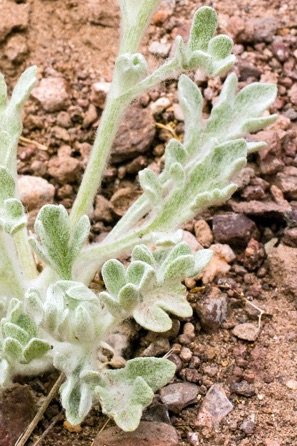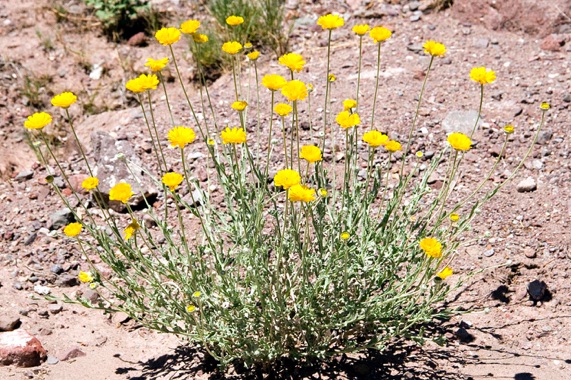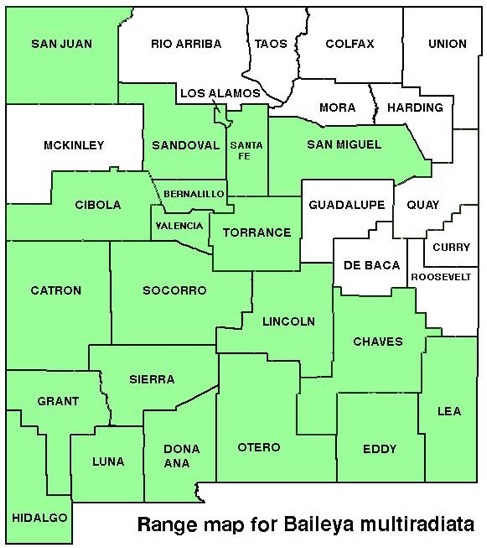WILDFLOWERS OF NEW MEXICO

The multiple flowering stems, 12–18 inches tall, from a basal cluster of densely woolly, silvery leaves and dramatic yellow flowers make this one of the showiest plants in the desert. Note the fuzzy-woolly phyllaries beneath the flower head, and the woolly, lobed leaves.
FLOWERS: March–November. Yellow, showy, one bloom on each stem, rays stacked in several rows around disk; 35–60 petal–like ray flowers 3/8–3/4 inch (10–20 mm) long, tip with three notches; yellow central disk.
LEAVES: Basal, alternate on stem. The rosette has densely woolly leaves to 4-inches (10 cm) long with deeply divided lobes. Stem leaves smaller.
HABITAT: Sandy, gravelly, loamy soils, roadsides; desert grasslands and scrub, pinion-juniper woodlands.
ELEVATION: 3,000–7,000 feet.
RANGE: AZ , CA , NV , NM , TX , UT.
SIMILAR SPECIES: The numerous ray flowers, single flower heads on unbranched stems, and woolly, lobed leaves help distinguish this species.
NM COUNTIES: Southern half of NM in low- to mid-elevation, arid habitats: Bernalillo, Catron, Cibola, Chaves, Dona Ana, Eddy, Grant, Hidalgo, Lea, Lincoln, Los Alamos, Luna, Otero, San Juan, San Miguel, Sandoval, Santa Fe, Sierra, Socorro, Torrance, Valencia.









DESERT MARIGOLD
BAILEYA MULTIRADIATA
Aster family, Asteraceae
Biennial or short-lived perennial herb



























THE CONTENTS OF THIS WEBSITE ARE COPYRIGHTED AND CANNOT BE USED
WITHOUT PERMISSION OF GEORGE OXFORD MILLER


































EMAIL ME
















